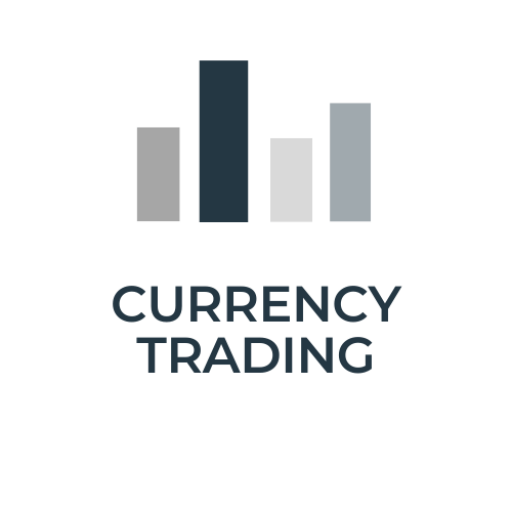Additionally, due to the nature of the OTC marketplace and the characteristics of the companies that trade OTC, investors should conduct thorough research before investing in these companies. It’s important to take their statements with a grain of salt and do your own research. While it’s fairly easy to purchase stocks on the major exchanges, it may take a bit more to understand how to execute a trade on the OTC markets. Consult customer service for your broker-dealer to understand how to execute an OTC trade through its specific platform.
- Compare the features of each platform to find the right one for you.
- And, it might be hard to separate the wheat from the chaff.
- These are bank-issued certificates representing shares in a foreign company.
- Let’s say a small company wants to sell its stock but doesn’t meet the prerequisites of an exchange, such as reaching a minimum share price or having a certain number of shareholders.
- If the buyer’s maximum price is above the seller’s minimum price, a transaction can occur.
NerdWallet does not and cannot guarantee the accuracy or applicability of any information in regard to your individual circumstances. Examples are hypothetical, and we encourage you to seek personalized advice from qualified professionals regarding specific investment issues. Our estimates are based on past market performance, and past performance is not a guarantee of future performance. The OTC Markets Group is a private company that quotes OTC equities. It was originally formed in 1913 as the National Quotation Bureau, which periodically provided brokers with lists of equity shares and bonds available for purchase.
How do I buy OTC stocks?
The best approach is to work with a dependable broker They specialize in these stocks and can guide you. Investments in OTC companies should be treated as highly speculative. Known as the “venture market,” this market entails a moderate amount of oversight, and it shares some information with the SEC. Cost of Goods Sold (COGS), is how much a company spends to directly create a product or service – The calculation?
Alternatively, you could hang a “for sale” sign in the window and give it a shot on your own. You don’t get the advantage of the system designed to bring buyers and sellers together. But you also don’t have to pay a listing fee or follow the rules of the exchange. Past performance is no guarantee of future results and the opinions presented cannot be viewed as an indicator of future performance. Get a better understanding of what OTCs are and how you can incorporate them into your trading or investing strategy.
Considerations For Investing in OTC Stocks
Others trading OTC were listed on an exchange for some years, only to be later delisted. A stock may be automatically delisted if its price falls below $1 per share. If the company is still solvent, those shares need to trade somewhere.
For more information on risks and conflicts of interest, see these disclosures. No offer to buy securities can be accepted, and no part of the purchase price can be received, until an offering statement filed with the SEC has been qualified by the SEC. An indication of interest to purchase securities involves no obligation or commitment of any kind.
Limiting your search to the Best and Venture Markets is safer, especially for novice investors. Many of the major brokerage firms that you use for regular stock trading allow for the trading of OTC stocks. Fees can vary for OTC versus regular stocks, so make sure you understand what the costs are relative to normal trading.
Open Your Brokerage Account and Get Started in OTC Stocks
Companies that operate cannabis-related businesses often have to list on the OTC markets because marijuana is still illegal on the federal level in the U.S. The primary advantage of OTC trading is the wide range of securities available on the OTC market. Several types of securities are available to investors solely or primarily through OTC trading. Derivatives are contracts whose value is tied to an underlying asset. The underlying asset may be anything from commodities to bonds to interest rates.
Our partners cannot pay us to guarantee favorable reviews of their products or services. Options trading entails significant risk and is not appropriate for all customers. Customers must read and understand the Characteristics and Risks of Standardized Options before engaging in any options trading strategies.
Such trades might happen directly with the company owners, or might be done through a broker. In the United States, listed companies are bought and sold on the New York Stock Exchange (NYSE) or the National Association of Securities Dealers Automated Quotation (NASDAQ). Companies not listed on the NYSE or NASDAQ can sell equity in their business over-the-counter. Other financial securities traded outside an exchange are also considered OTC — such as bonds, derivatives, currencies, and other complex instruments. A range of securities and instruments only trade OTC though.
The con artists grab their profits and everyone else loses money. Most successful stocks, such as Microsoft (MSFT), Meta (META), formerly Facebook, and Tesla (TSLA), all first listed their shares on the NYSE or Nasdaq with prices above $10. The first step an investor must make before trading OTC securities is to open an account with a brokerage firm. OTC stocks are listed in 1 of 3 OTC markets owned and managed by the OTC Markets Group. Here’s a rundown of how the over-the-counter stock markets work and the types of securities you might find on the OTC markets. We’ll also discuss some other key information you should know before you decide whether OTC stocks are right for you.
Start investing in OTCs today.
If you’re curious about OTC trading, Public offers over 300 OTC stocks that you can invest in using our online investment platform. Investors can trade OTC on Public with the same available funds they would use for any other trade, and users with funded accounts automatically have access to OTC trading. OTC stocks are not only traded in a different manner to exchange-listed stocks, but are subject to elevated risks that investors should evaluate with care. Unlisted companies don’t have to share as much public information as stocks that trade on a major exchange, which increases the risk of owning their shares. NerdWallet, Inc. is an independent publisher and comparison service, not an investment advisor. Its articles, interactive tools and other content are provided to you for free, as self-help tools and for informational purposes only.
As we’ve seen, some types of stocks trade on the OTC markets for very good reasons, and they could make excellent investment opportunities. On the other hand, many OTC stocks are of highly speculative businesses or even outright fraudulent companies involved in pump-and-dump scams. OTC stocks are inherently riskier than those traded over the regular exchanges. Treat these stocks as speculative and size your positions appropriately. It encompasses any financial instruments that aren’t directly traded through a central exchange, including stocks, bonds and derivatives.
This information is not a recommendation to buy, hold, or sell an investment or financial product, or take any action. This information is neither individualized nor a research report, and must not serve as the basis for any investment decision. All investments involve risk, including the possible loss of capital. Past performance does not guarantee future results or returns. Before making decisions with legal, tax, or accounting effects, you should consult appropriate professionals.
Before taking action based on any such information, we encourage you to consult with the appropriate professionals. We do not endorse any third parties referenced within the article. Market and economic views are subject to change without notice and may be untimely when presented here. Do not infer or assume that any securities, sectors or markets described in this article were or will be profitable. Historical or hypothetical performance results are presented for illustrative purposes only. There are a number of reasons why a security might be traded OTC rather than on an exchange, including the size of the company and the country where it is based.
Because they are not well established, there may be a higher chance of failure. OTC (“over-the-counter”) stocks are stocks that are not listed on a major, centralized exchange like the NASDAQ, NYSE and are instead traded by broker-dealers. Broker-dealers are individuals or investment firms that trade stocks for their own portfolios or the portfolios of their clients.
Finder monitors and updates our site to ensure that what we’re sharing is clear, honest and current. Our information is based on independent research and may differ from what you see from a financial institution or service provider. When comparing offers or services, verify relevant information with the institution or provider’s site. Stacie Hurst is an editor at Finder, specializing in a wide range of topics including stock trading, money transfers, loans, banking products, online shopping and streaming. She has a Bachelor of Arts in Psychology and Writing, and she completed one year of law school in the United States before deciding to pursue a career in the publishing industry. When not working, Stacie can usually be found watching K-dramas or playing games with her friends and family.
Residents, Charles Schwab Hong Kong clients, Charles Schwab U.K.
It spent its early years growing into what is now a technology giant. In 2012, the company decided to go public and sell shares of the company via the NASDAQ exchange. Although the initial public offering (IPO) didn’t happen until eight years after the company launched, that doesn’t mean you couldn’t own a piece of the company before then. If you wanted to buy into the fledgling company back in 2007, you would have needed to do it over-the-counter (OTC). The information provided here is for general informational purposes only and should not be considered an individualized recommendation or personalized investment advice. The investment strategies mentioned here may not be suitable for everyone.
Products
T-bills are subject to price change and availability – yield is subject to change. Investments in T-bills involve a variety of risks, including credit risk, interest rate risk, and liquidity risk. As a general rule, the price of a T-bills moves inversely to changes in interest rates. Although T-bills are considered safer than many other financial instruments, you could lose all or a part of your investment. Jiko U.S. Treasuries Risk Disclosures for further details. Investors using OTC trading can buy stock in foreign companies by purchasing American Depository Receipts (ADRs).
These are bank-issued certificates representing shares in a foreign company. An American financial institution can purchase shares in the company on a foreign exchange, and then sell ADRs to U.S. investors. Keep in mind, other fees such as trading (non-commission) fees, Gold subscription fees, wire transfer fees, and paper statement fees may apply to your brokerage account. The Over-the-Counter Bulletin Board (OTCBB) is a quotation service hosted by the Financial Industry Regulatory Authority (FINRA). FINRA is a not-for-profit, non-governmental regulatory body that was authorized by the legislation that created the Securities and Exchange Commission (SEC).
An interested buyer seeks out the product and has a maximum price they are willing to pay. The owner of the product has a minimum amount they are willing to accept. If the buyer’s maximum price is above the seller’s minimum price, a transaction can occur.
We may receive payment from our affiliates for featured placement of their products or services. We may also receive payment if you click on certain links posted on our site. When you look into OTC stocks, there are several places you might find them. The Best Market (OTCQX) houses stocks with large market caps, high liquidity and solid backing. The Venture Market often carries stocks from startups or companies in the development phase. The Pink Open Market and grey sheets could contain shell corporations, businesses enduring a bankruptcy or companies delinquent on filings/under investigation.
All investments involve the risk of loss and the past performance of a security or a financial product does not guarantee future results or returns. You should consult your legal, tax, or financial advisors before making any financial decisions. This material is not intended as a recommendation, offer, or solicitation to purchase or sell securities, open a brokerage account, or engage in any investment strategy.













